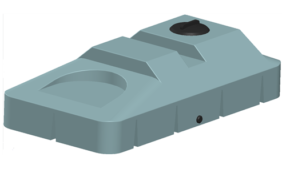Water pumps provide a consistent and dependable water supply for homes and communities that depend on wells or water storage tanks. Water transportation from subterranean sources or remote reservoirs to faucets and appliances would be a laborious and ineffective procedure without a pump. The essential infrastructure required for basic hygiene, cooking, cleaning, and drinking water access is provided by water pumps in rural or isolated locations where municipal water supplies may be unreliable or absent.
Process Efficiency and Industrial Applications
The gutter guard in Melbourne are used by industries to power a wide range of operations, from processing raw materials and cooling machinery to handling wastewater and preserving cleanliness. Water pumps make sure that water is handled accurately and effectively, which helps to optimise processes in industries including food processing, chemical manufacture, and power generation.
High-capacity pumps are perfect for large-scale operations where speed, consistency, and pressure control are crucial since they can handle substantial amounts of liquid. Reduced operating costs, better product quality, and more environmental compliance are all possible outcomes of their contribution to industrial efficiency.
Energy Conservation and Technological Advancement
Pump technological advancements have produced more energy-efficient types that use less electricity while still providing strong performance. For instance, variable-speed pumps can save energy when full power isn't required by adjusting their output in response to demand. Solar-powered water pumps are a popular option for people who care about the environment since they provide a sustainable alternative in off-grid or energy-constrained areas.
Endorsing Sanitation and Clean Water Projects
Water pumps are essential for providing clean water to areas without basic infrastructure in developing nations and humanitarian operations. These pumps are frequently used to supply sanitary facilities and safe drinking water in schools, health clinics, and refugee camps.
In addition to maintaining steady water flow, contemporary pumps with pressure systems enhance household comfort and convenience. By lowering the incidence of waterborne illnesses and promoting good cleanliness habits, consistent access to water significantly improves health outcomes. In this situation, water pumps transform from mere devices into vital tools that promote survival, dignity, and growth. Purchasing high-quality water pump systems is a step towards sustainability, safety, and well-being in addition to being a sensible decision.

